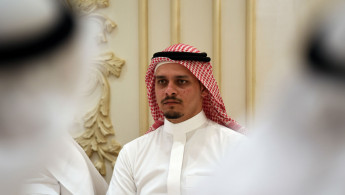Khashoggi children receiving 'blood money' from Saudi authorities to 'buy their silence'
Saudi Arabia is paying out monthly "blood money" to the four children of murdered Saudi journalist Jamal Khashoggi as so-called "compensation" for the murder of their father in October last year.
While none of Khashoggi's children - two sons and two daughters - have publicly criticised the Saudi regime following the murder of their father, the kingdom is trying to keep the siblings from speaking out in the future by giving them "million-dollar houses" and "monthly five-figure payments", The Washington Post reported.
Even larger "blood money" payments - possibly "tens of millions of dollars" each - are likely to be offered to the Khashoggi siblings in the next few months, current and former Saudi officials, as well as people close to the family, have said.
Negotiations over further payments, likely with Salah Khashoggi, considered the lead negotiator for the family, are likely to take place after the trials of Khashoggi's accused killers.
The brother of de-facto ruler Crown Prince Mohammed bin Salman and outgoing Saudi ambassador to the US Khalid bin Salman is said to be the regime's lead negotiator.
Five of the 11 suspects could face the death penalty over the murder.
The crown prince's right-hand man Saud al-Qatani was also said to be part of the team dispatched to kill Khashoggi but was not arrested by the Saudi authorities.
He was dismissed from his position soon after the killing, but the crown prince, also known as MbS, reportedly continues to take advice from him.
The identities of those arrested have not be revealed to the public by Saudi authorities, casting even more doubts about whether those involved in the murder will ever be brought to justice.
Instead, it is more likely that the Khashoggi family will be offered "compensation" in return for the Saudi regime commuting the sentences of the accused killers, sources say.
Such an agreement could close the case under Saudi law, without any others involved in the killing - such as Crown Prince Mohammed bin Salman, who has been linked to the murder - facing justice.
Operatives are believed to have been sent from Riyadh to Istanbul to murder and dismember the veteran Saudi journalist, a Washington Post columnist living in the US at the time of the killing, on 2 October last year in the kingdom's consulate in Istanbul.
Khashoggi had already resisted calls from Riyadh to return home to Saudi Arabia fearing the worst, but necessary documents for his planned wedding necessitated a visit to the consulate.
His body is yet to be found, but Turkish investigators allege that the team present at the Saudi consulate burned his corpse in an outdoor furnace located in the Saudi consul's home.
In the wake of the killing, none of his children criticised the kingdom despite a worldwide backlash against Saudi Arabia for the murder.
King Salman, a former Saudi official says, later approved the "delivery of homes and monthly payments of $10,000 or more to each sibling" to "make a wrong, right" and acknowledge the "big injustice" of the murder.
"Such support is part of our custom and culture," a Saudi official told The Washington Post.
Victims of crime are often awarded financial assistance in the kingdom.
"It is not attached to anything else," he claimed, dismissing allegations the payments were "blood money" used to buy the family's silence. Others disagree.
"The payments are to control them and to buy their silence", an anonymous source with knowledge of the issue told The New Arab.
"The men in custody will not be killed," added the source, explaining that it would be an untenable position for the kingdom which would "severely impact other staff" working for the crown prince.
While Norah, Razan and Abdullah live in the US and reportedly plan to sell the homes given to them, their eldest brother Salah lives in the $4 million home in a compound in Jeddah given to him as part of an initial settlement with the Saudi authorities.
Salah was infamously pictured shaking hands with MbS just weeks after the killing of his father, in what many say was a forced interaction.
Although the siblings were initially banned from leaving Saudi Arabia following Khashoggi's murder, they were later allowed to leave the country to the US. All four are dual Saudi-US citizens.
However, Salah Khashoggi remains in the kingdom, which could explain why his siblings have refused to comment on the murder.
The most his sisters Norah and Razan have done is to say their father was "no dissident" in a Washington Post opinion article last year.
Salah would not comment on the payments when asked by the Washington Post on Monday.





 Follow the Middle East's top stories in English at The New Arab on Google News
Follow the Middle East's top stories in English at The New Arab on Google News

![Israeli forces ordered bombed Gaza's Jabalia, ordering residents to leave [Getty]](/sites/default/files/styles/image_330x185/public/2176418030.jpeg?h=a5f2f23a&itok=_YGZaP1z)
